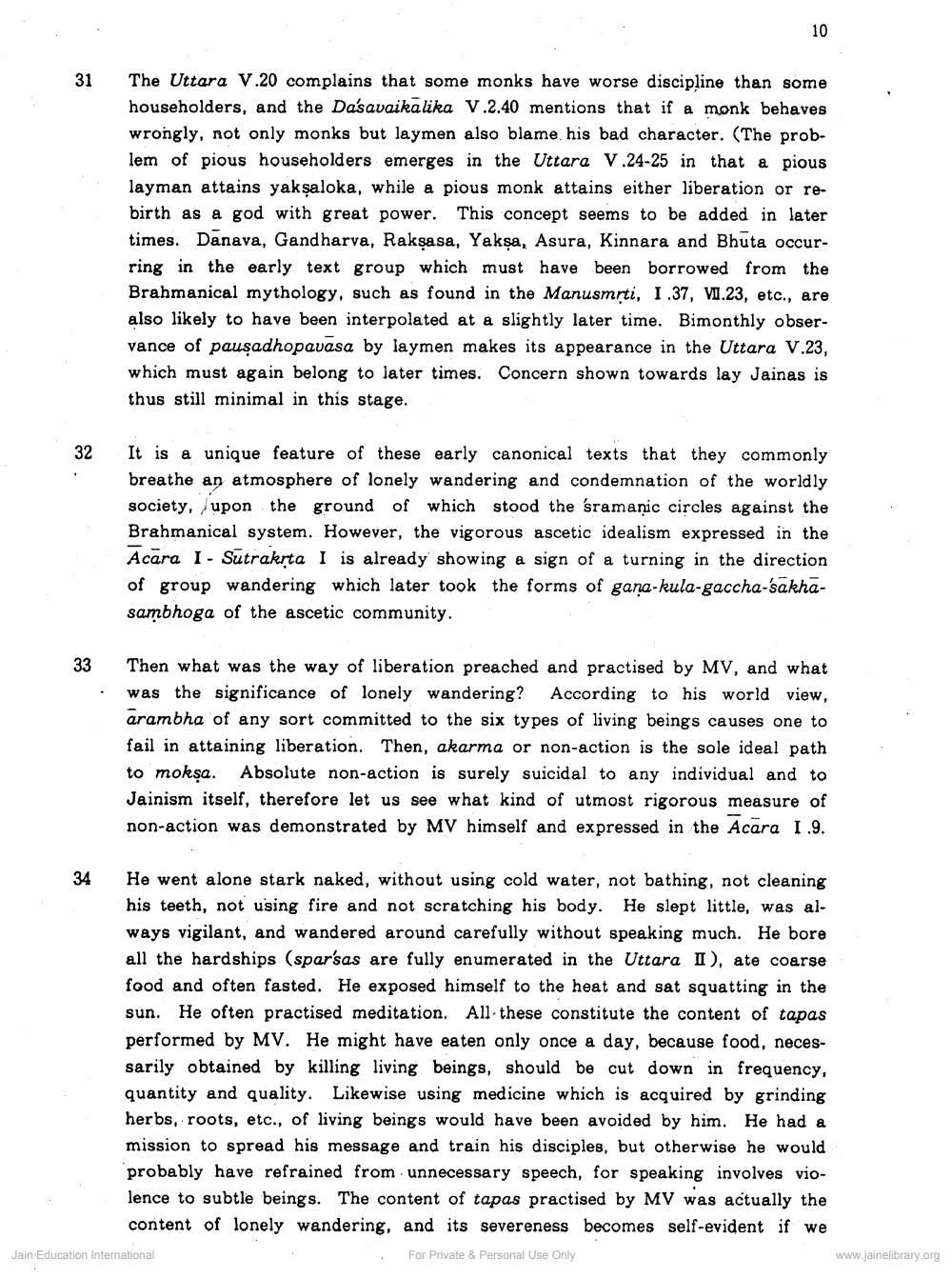________________
10
The Uttara V.20 complains that some monks have worse discipline than some householders, and the Dasavaikā lika V.2.40 mentions that if a monk behaves wrongly, not only monks but laymen also blame his bad character. (The problem of pious householders emerges in the Uttara V.24-25 in that a pious layman attains yakşaloka, while a pious monk attains either liberation or rebirth as a god with great power. This concept seems to be added in later times. Danava, Gandharva, Raksasa, Yakşa, Asura, Kinnara and Bhuta occurring in the early text group which must have been borrowed from the Brahmanical mythology, such as found in the Manusmrti, 1.37, VI.23, etc., are also likely to have been interpolated at a slightly later time. Bimonthly observance of pausadhopavasa by laymen makes its appearance in the Uttara V.23, which must again belong to later times. Concern shown towards lay Jainas is thus still minimal in this stage.
32
It is a unique feature of these early canonical texts that they commonly breathe an atmosphere of lonely wandering and condemnation of the worldly society, upon the ground of which stood the śramanic circles against the Brahmanical system. However, the vigorous ascetic idealism expressed in the Acara I - Sutrakrta I is already showing a sign of a turning in the direction of group wandering which later took the forms of gana-kula-gaccha-sakhasambhoga of the ascetic community.
33
Then what was the way of liberation preached and practised by MV, and what was the significance of lonely wandering? According to his world view, arambha of any sort committed to the six types of living beings causes one to fail in attaining liberation. Then, akarma or non-action is the sole ideal path to mokşa. Absolute non-action is surely suicidal to any individual and to Jainism itself, therefore let us see what kind of utmost rigorous measure of non-action was demonstrated by MV himself and expressed in the Acara 1.9.
34
He went alone stark naked, without using cold water, not bathing, not cleaning his teeth, not using fire and not scratching his body. He slept little, was always vigilant, and wandered around carefully without speaking much. He bore all the hardships (sparsas are fully enumerated in the Uttara I), ate coarse food and often fasted. He exposed himself to the heat and sat squatting in the sun. He often practised meditation. All these constitute the content of tapas performed by MV. He might have eaten only once a day, because food, necessarily obtained by killing living beings, should be cut down in frequency, quantity and quality. Likewise using medicine which is acquired by grinding herbs, roots, etc., of living beings would have been avoided by him. He had a mission to spread his message and train his disciples, but otherwise he would probably have refrained from unnecessary speech, for speaking involves violence to subtle beings. The content of tapas practised by MV was actually the
content of lonely wandering, and its severeness becomes self-evident if we Jain Education International . For Private & Personal Use Only
www.jainelibrary.org




